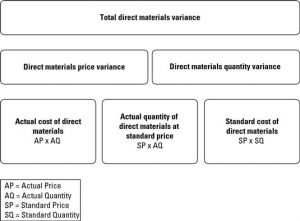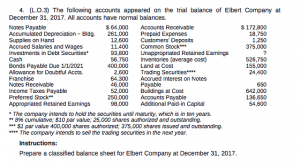
While there are many factors involved, the accounting process is foundational. Put simply, accounting is “the process of recording financial transactions pertaining to a business” (Investopedia). Receive the latest financial reporting and accounting updates with our newsletters and more delivered to your inbox. It is the combination of a predominant mindset, actions (both big and small) that we all commit to every day, and the underlying processes, how long are checks good for programs and systems supporting how work gets done. At the end of the first year, the company will reverse the unearned revenue to revenue on the income statement. Franchises offer entrepreneurs the chance to start their own businesses with a proven model and support from the franchisor, making them an attractive option for many people looking to start their own businesses.
What is a Franchisee?
Or, there may be an area development franchising arrangement, where the franchisee gets the right to develop a certain number of units within a specific territory, such as a county or a state. This entity then enters into a separate arrangement with the franchisor for each unit constructed within that territory. Experience proactive tax planning, cash flow management, and tailored accounting with our dedicated team of CPAs, all focused on YOUR business goals. Enjoy comprehensive services — from bookkeeping to tax returns — for one flat monthly fee. Being a franchisee means that you have to pay attention to more than just the day-to-day financial and operational decisions of running a business. The franchisor is like a not-so-quiet partner in a franchise venture, which means they have the right to audit your accounting records any time they suspect something is amiss.
Accounting for Franchises (#
- They can access the software program from anywhere with an Internet connection so that both parties have instant access to financial records.
- Franchisees usually start their business journey with a considerable investment.
- While there are many factors involved, the accounting process is foundational.
- Franchise businesses operate under a unique set of financial circumstances and regulations, making it vital for franchise owners to have an accountant who understands the intricacies of this business model.
- Being the owner of the intellectual property, the franchisor entrusts its brand and business model to franchisees, who then operate individual locations under the franchise license.
In most cases, it makes sense to hire a professional accountant with franchise experience for your business. Not only does this free up your time for other areas of the business, but it also avoids costly mistakes and promotes accuracy. Working with an accountant as a business owner is sure to save you time, trouble, and money in the long-run. The cost of the franchise includes the initial fee paid to the franchisor, as well as any ongoing royalties or other payments that are required under the franchise agreement. The purchase of a franchise represents a significant investment, and it is important for potential franchisees to carefully consider all factors before making a decision.
Please Sign in to set this content as a favorite.
As a franchise owner, you can run your own business without the risk of starting a brand new company. Like any business, you take on the many responsibilities of day-to-day operations, including some basic accounting tasks. Though franchise accounting is similar to accounting for other types of businesses, it includes a few extra steps. When it comes to franchise accounting, sticking to a budget is crucial for maintaining good cash flow. A budget allows franchise owners to plan and allocate their financial resources effectively, ensuring that expenses are controlled and revenues are optimized. In summary, franchise accountants provide valuable guidance to franchisees by regularly reviewing their debt structure and seeking lower-cost options.
The franchise will be recorded as intangible assets on the balance sheet. For example, someone in benefits of good bookkeeping practices your town could own and operate a local fast food restaurant. But the entire restaurant brand is owned by one, superior entity. Next, let’s assume that the franchisor is constructing facilities on behalf of its franchisees, with the franchisees paying advances as the work proceeds.
The franchisee is the company that purchases the franchise from the franchisor. The company needs to pay the fee to receive the right to operate the business. The franchisee then agrees to follow the franchisor’s proven business model and operate its business according to the terms of the contract. It’s possible that a franchisee may sell out to a replacement franchisee, which usually calls for the payment of a transfer fee to the franchisor.
Final Forms and Instructions for IRS’ 2024 ACA Reporting Available
Even though these expenditures might lead to lots of franchising revenue somewhere down the road, they’re still considered to be business phone plans research and development costs, and those costs are charged to expense as incurred. Franchising helps market a brand to a large number of customers. When someone buys a franchised business, they already know that there’s a strong demand for their products or services. Divide the balance you used in the “Franchise” account by the length of the franchise contract. Start your journey to simpler, more effective franchise accounting today by scheduling an initial consultation with us.
In this podcast episode, we discuss the accounting for franchises. Three of the seven board members—Christine Botosan, Harold Schroeder, and Gary Buesser—wrote a joint dissent to state that the new rules will not improve U.S. Helping clients meet their business challenges begins with an in-depth understanding of the industries in which they work. In fact, KPMG LLP was the first of the Big Four firms to organize itself along the same industry lines as clients.

A final possibility is for a pre-existing, independent business to enter into a franchisee relationship, where it agrees to operate under the logo of the franchisor. In this last case, the franchisee already knows that the selected location will succeed, since it’s already been in operation for some time. The franchisor uses the marketing fund for advertising materials that promote the entire franchise’s brand. To own a franchise, the franchisee must pay the franchisor certain fees. The fees allow the franchisee to own the rights to the business’s brand, products, and services. For example, someone in your town could own and operate a local fast-food restaurant.
Once operating, the franchisee pays royalties each month, quarter, or year. Sometimes, the fee is a percentage of the net sales or a flat dollar amount. The franchisor needs individuals to operate each franchise location. For each location, the franchisor sells the rights to the franchise to individuals. The amendments will reduce the cost and complexity of applying Topic 606 to pre-opening services for privately owned franchisors, the board said.

